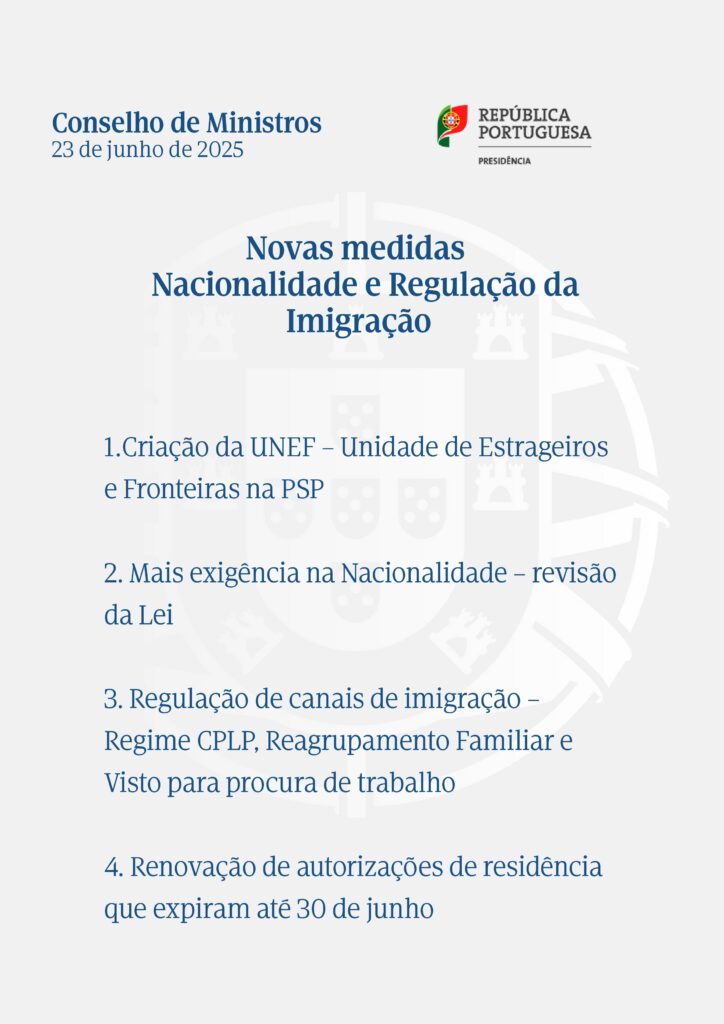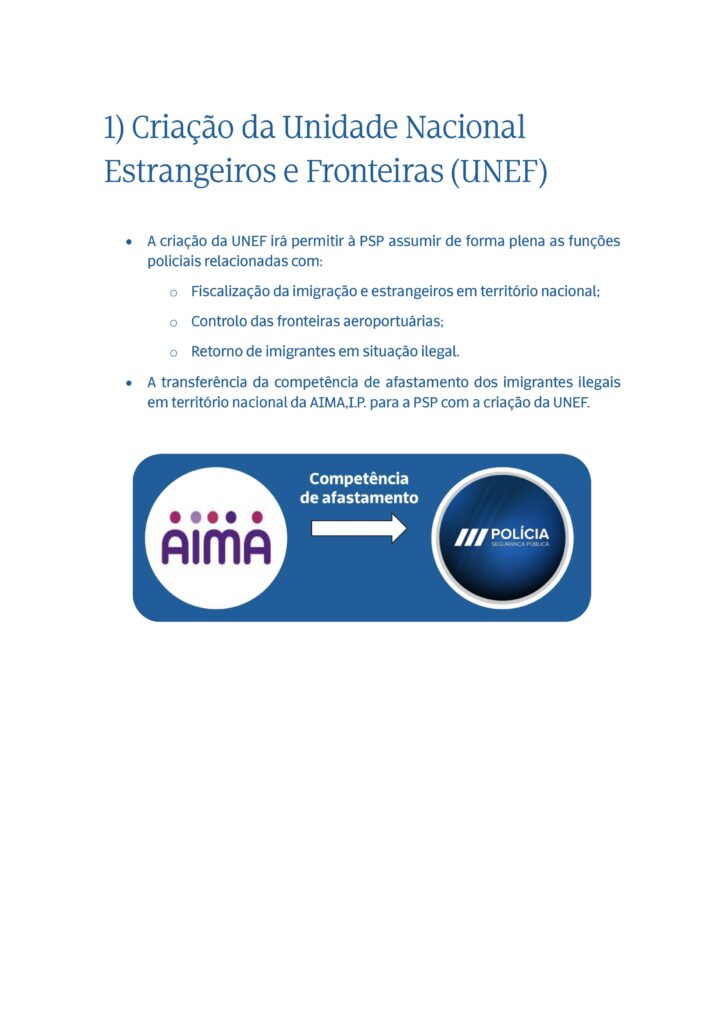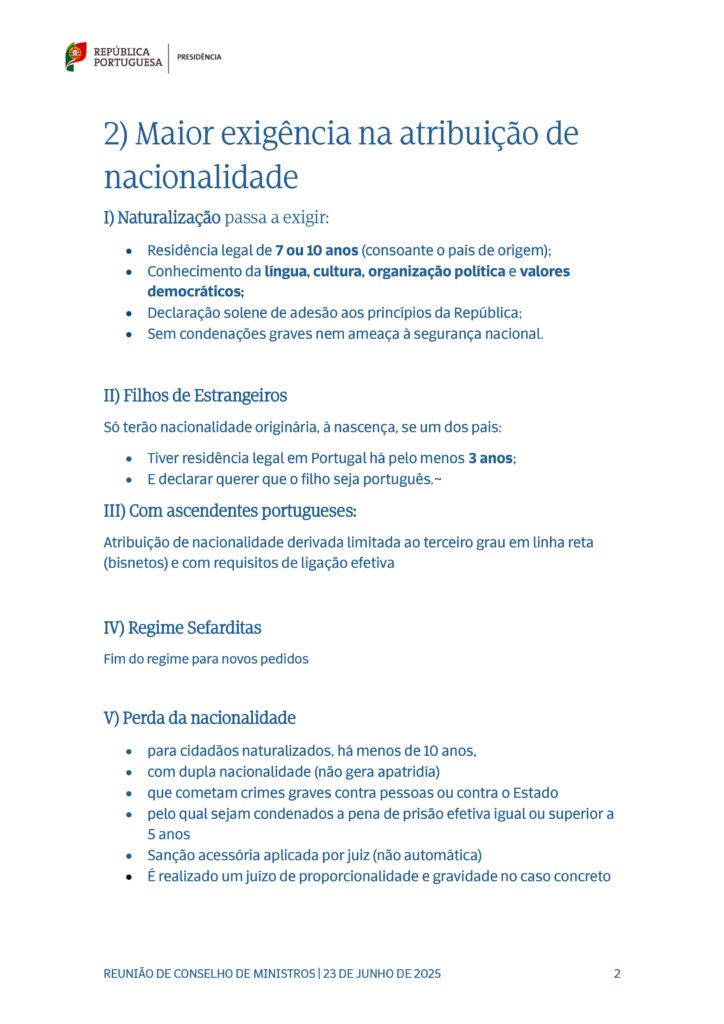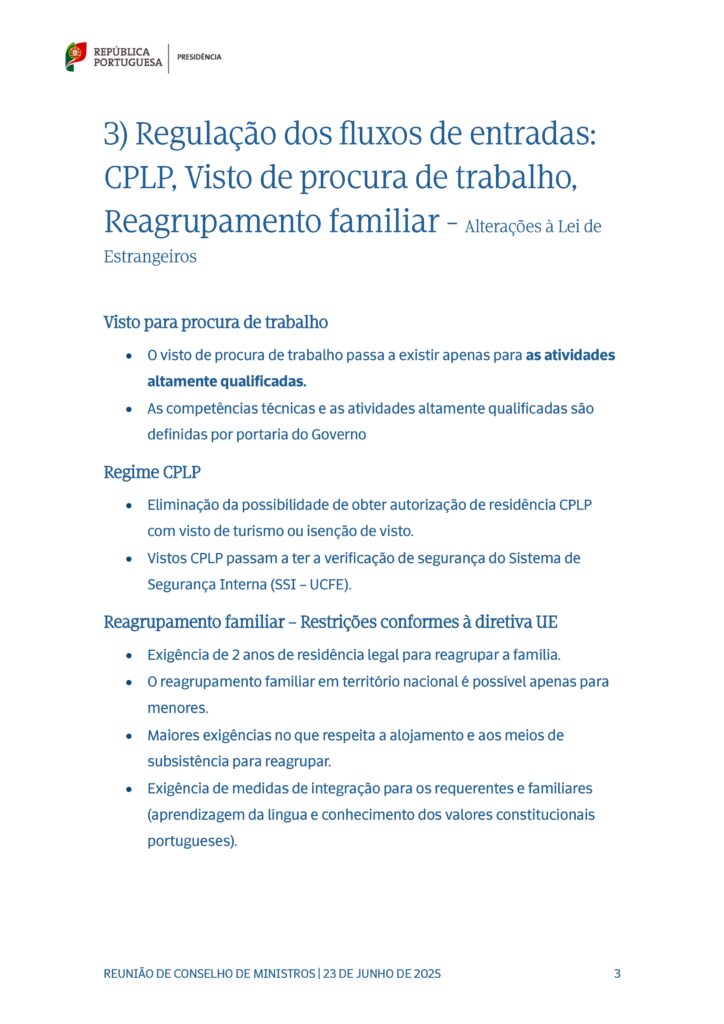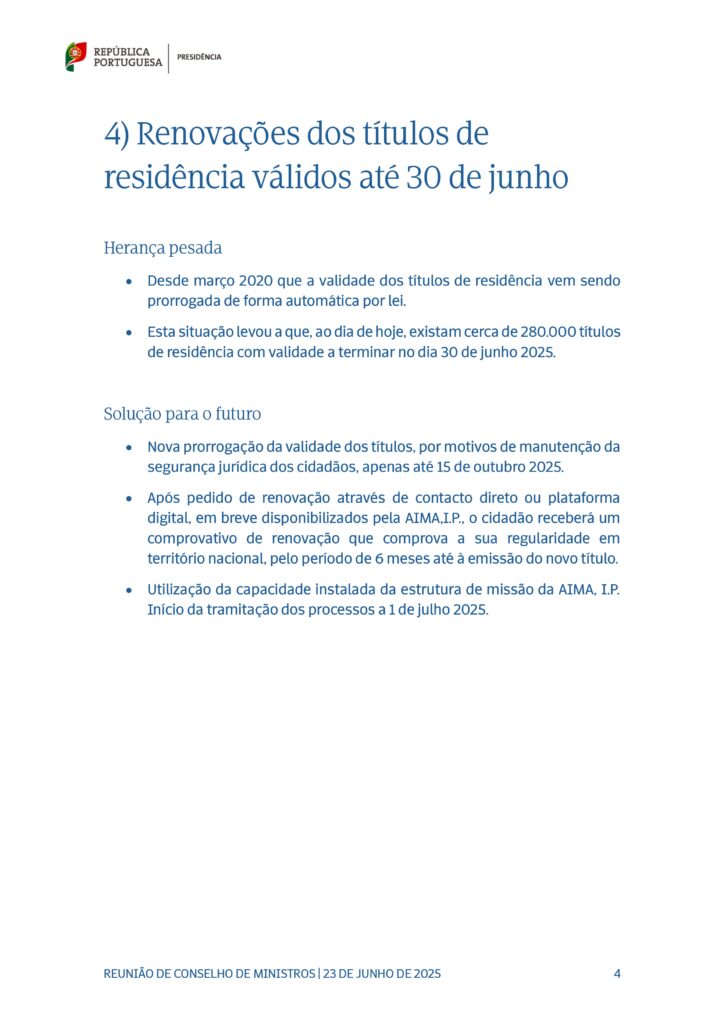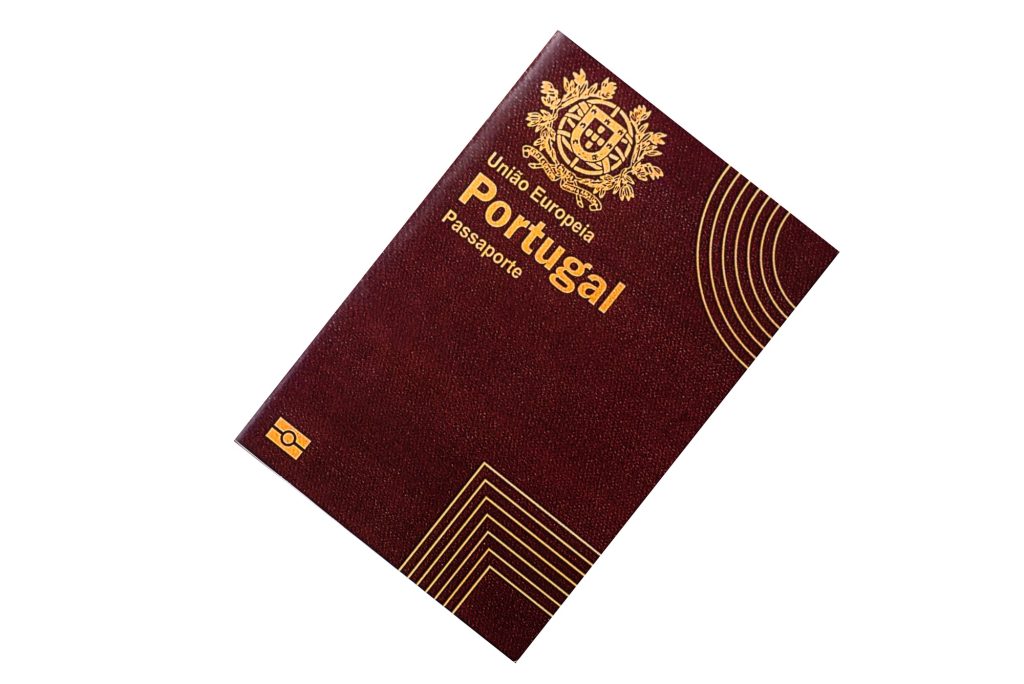Portugal Announces Major Immigration and Nationality Reform with Immediate Residence Permit Extensions
The Portuguese Council of Ministers approved comprehensive immigration reforms on June 23, combining immediate administrative measures with longer-term legislative changes that will reshape the country’s approach to immigration and citizenship.
Immediate Action: 280,000 Residence Permits Extended
The most urgent measure addresses a critical administrative backlog. Approximately 280,000 residence authorizations set to expire on June 30, 2025, have been extended until October 15, 2025. Starting July 1, affected residents can apply for simplified renewals through AIMA’s digital platform, receiving a 6-month validity certificate while awaiting new permits.
This emergency extension stems from automatic renewals that have been in place since March 2020, creating what officials describe as a “heavy inheritance” requiring immediate resolution.
Structural Reforms Require Legislative Process
The broader reforms announced include:
UNEF Creation: A new National Unit for Foreigners and Borders will be established within the Public Security Police (PSP), transferring immigration enforcement powers from AIMA. This unit will handle border control, immigration monitoring, and deportations.
Stricter Citizenship Requirements:
- Naturalization will require 7-10 years of legal residence (depending on origin country, on past is was only 5 years)
- Children born in Portugal of foreign nationals need at least one parent with 3+ years legal residence
- Portuguese ancestry claims limited to great-grandchildren only
- Sephardic citizenship pathway permanently closed
- New provisions allow citizenship revocation for dual nationals convicted of serious crimes
Tightened Entry Channels:
- Work search visas restricted to highly qualified activities only
- CPLP regime eliminates tourist visa conversions, adds mandatory security checks
- Family reunification requires 2 years legal residence, limited to minor children
Timeline and Implementation
While the residence permit renewals begin July 1, the structural reforms require parliamentary approval and regulatory development. Government ordinances must still define “highly qualified activities” and establish new procedures.
The reforms signal Portugal’s shift toward more selective, security-focused immigration policies while maintaining legal pathways for qualified migrants and addressing immediate administrative needs.
